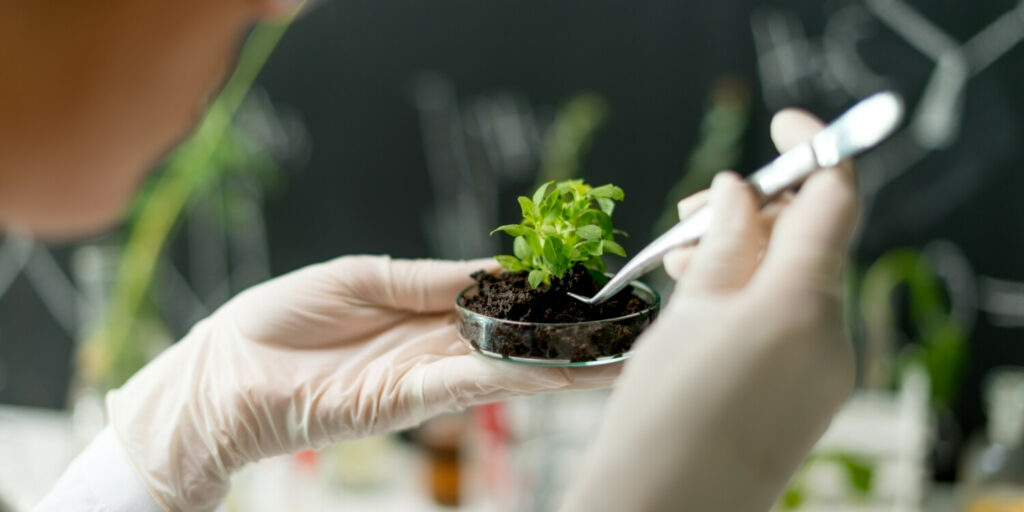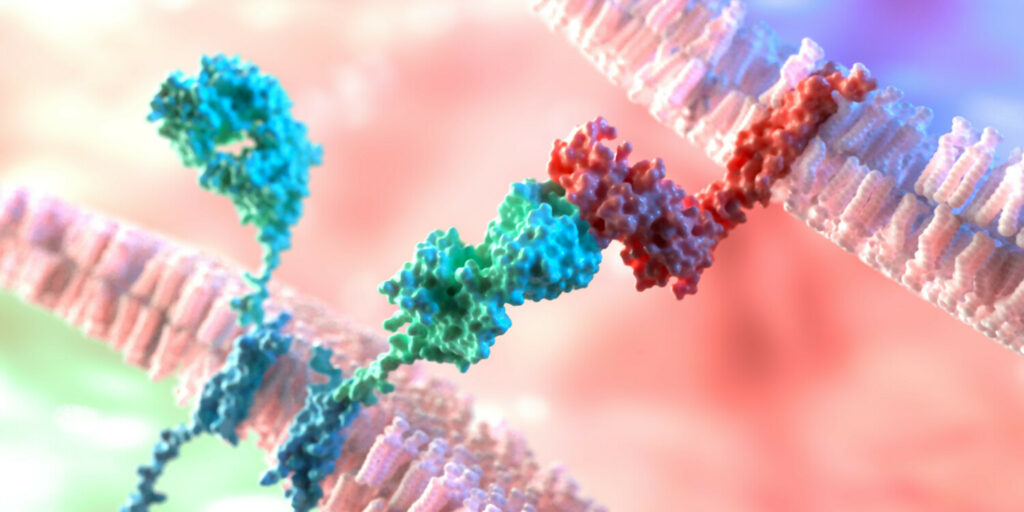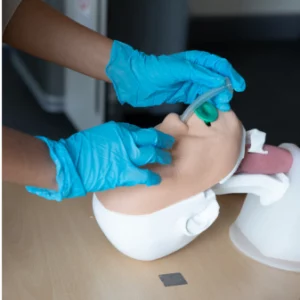Chemistry a-level is extremely hard compared to other subjects, with only 13.6% achieving an A* in 2022 and 24.4% getting an A. Many students struggle with chemistry in school and wonder if they have what it takes to handle the rigours of an A-Level chemistry course.
The A-Level Chemistry curriculum is known to be challenging, with complex concepts requiring difficult problem-solving skills. This can be intimidating for students who may not have a strong foundation in chemistry or are struggling with the subject.
If you want to get a headstart on building your study skills to become strong enough, even for university-level Chemistry, check out our Chemistry Summer School.
In addition, we’ve prepared this article to help you explore the difficulty of A-Level Chemistry. You’ll also discover the difference between A-Level Chemistry and GCSE and why one is more complex than the other.
So you can decide whether A-Level Chemistry is worth taking according to your personal goals. Read on!
How Hard is it to Get an A * in Chemistry A-Level?
In 2022, only 13.6% of A-Level Chemistry students in England received an A*. How about those who received an A? Only 24.4% got it.
| Chemistry Grade in 2022 | Percentage |
| A* | 13.6% |
| A | 24.4% |
How does this result compare with
- Maths
- Physics
- And Biology?
Let’s take a look.
Is Chemistry A-Level Harder Than Maths?
Yes, Chemistry A-Level is harder than Maths based on the percentage of students who gained an A*.
First, what percentage of A-Level students achieved A*s and As in Maths? The table below reveals that around 22.8% received an A*, and 24.3% got an A.
| Maths Grade in 2022 | Percentage |
| A* | 22.8% |
| A | 24.3% |
Comparing A-Level Maths outcomes with Chemistry, we have
| Grade | (Chemistry) Percentage | (Maths)Percentage |
| A* | 13.6% | 22.8% |
| A | 24.4% | 24.3% |
Notice that Chemistry’s 13.6% is to Math’s 22.8% for A*, and Chemistry’s 24.4% is to Math’s 24.3% for A. Hence, more Maths students bagged an A* than Chemistry. With A, both subjects are neck and neck at 24%.
What does the comparison show? It shows that since more Maths students achieved an A*, it’s safe to say that it’s an easier A-Level subject than Chemistry. At least based on the percentage of students who got the top grade.
Fun fact: Do you know that around 20% of A-Level Chemistry requires you to use your Maths skills?
Is Chemistry A-Level Harder Than Physics?
Not really. But Chemistry and Physics A-Level are neck-and-neck based on the percentage of students who received an A* and A.
Based on the table below, you’ll observe that 16.4% of A-Level Physics students achieved an A*, and 22.1% received an A. How does that compare to Chemistry?
| Physics Grade in 2022 | Percentage |
| A* | 16.4% |
| A | 22.1% |
The following table shows that Chemistry’s 13.6% is to Physics’ 16.4% for A*. Meaning fewer Chemistry students bagged an A* grade, right? Unfortunately, but only by a -2.8% difference.
How about for the A grade? Chemistry’s 24.4% is to Chemistry’s 22.1%. More Chemistry students achieved the A here, but only by a 2.3% difference.
| Grade | (Chemistry) Percentage | (Physics)Percentage |
| A* | 13.6% | 16.4% |
| A | 24.4% | 22.1% |
Get the sum between -2.8% (fewer Chemistry students got A*) and 2.3% (more Chemistry students received A), and we got a .5% margin.
Chemistry is a tad harder than Physics by such a small margin (.5%), that it’s practically negligible.
Join the Immerse Education 2025 Essay Competition
Follow the instructions to write and submit your best essay for a chance to be awarded a 100% scholarship.

Is Chemistry A-Level Easier Than Biology?
Yes, Chemistry A-Level is easier than Biology. But only by a small percentage. The table below indicates that 12.8% of Biology students acquired an A*, and 21% received an A. How does this data compare with Chemistry?
| Biology Grade in 2022 | Percentage |
| A* | 12.8% |
| A | 21% |
In the following table, you’ll notice that Chemistry’s 13.6% is to Biology’s 12.8% for A*. Not much difference, right? Yes, only 0.8% more Chemistry students bagged the A* grade.
What about A? Chemistry’s 24.4% is to Biology’s 21%. Here the difference is more considerable. Around 3.4% more Chemistry students received an A grade.
Hence, Chemistry is a bit easier than Biology based on the percentage of students who got A*s and As.
| Grade | (Chemistry) Percentage | (Biology)Percentage |
| A* | 13.6% | 12.8% |
| A | 24.4% | 21% |
Is Chemistry A-Level Harder Than GCSE?
Yes, Chemistry A-Level is harder than GCSE by necessity. A-Level, after all, stands for “Advanced Level.” Hence, all A-Levels are meant to be more complex than GCSEs. A-Levels are designed to cover more complex and in-depth material.
For what reason? To prepare you for higher education and future careers.
Suffice to say, the step-up of A-Level Chemistry from its GCSE counterpart may be larger than other subjects. Why? Because Chemistry is inherently complex and wide-ranging.
Let’s glance at the specification to help you understand just how far advanced A-Level Chemistry is from GCSE.
For the AQA GCSE Chemistry, there are only 10 topics you will need to cover, including modules such as
- Atomic structure & the periodic table
- Quantitative chemistry
- Chemical changes
- Energy changes
- And Organic Chemistry, to mention a few.
But for AQA A-Level Chemistry, the 10 topics deepen into 34. These 34 modules are grouped into 3 major subjects
- Physical Chemistry
- Inorganic Chemistry
- And Organic Chemistry
Do you want to check out a few lessons under each of the 3 Chemistry Divisions?
1. Physical Chemistry
Under Physical Chemistry, there are 12 topics, a few of which include
- Atomic Structure
- Bonding
- Energetics
- Acids and Bases
2. Inorganic Chemistry
How about Inorganic Chemistry? There are around 6 modules for you to study. Some are
- Periodicity
- Alkaline Earth Metals
- Halogens
- Transition Metals
3. Organic Chemistry
For Organic Chemistry, there are a whopping 16 subtopics. Here are a few to give you a glimpse:
- Alkanes
- Alkenes
- Alcohols
- Aldehydes and Ketones
- Aromatic Chemistry
- Polymers
- Amino Acids, Proteins, and DNA
- Organic Synthesis
- Chromatography
So, A-Level Chemistry has way more topics to cover than GCSE. And each of the topics contains more in-depth discussion.
What else makes A-Level Chemistry more challenging?
Why is A-Level Chemistry So Hard?
Aside from the broader and more in-depth topics, what else makes A-Level Chemistry so hard? There are two additional factors:
- A-Level Chemistry requires a higher level of mathematical skills, and
- Exams are more difficult due to the mark scheme’s specificity.
Our tutors and teachers helped cover how to revise for your chemistry a-level exams so make sure to check it out.
A-Level Chemistry requires a higher level of mathematical skills
What are some of the mathematical skills you’d need to ace A-Level Chemistry?
- Unit conversion (e.g. enthalpy changes in kJ mol–1 and entropy in J mol–1 K–1)
- Use the correct number of decimal places (e.g. pH)
- Convert between standard and ordinary form
- Solve for the percentage yield
- Balance equations by using ratios
- Estimate results when variables change (e.g. if temperature changes to X, what would the value of Kc be?)
- Perform buffer calculations
You’ll better grasp the chemical principles by understanding the underlying Mathematical concepts.
Exams are more difficult due to the mark scheme’s specificity
Mark schemes dictate how your answer will be graded. Such is the A-Level Chemistry’s mark schemes specificity that you could lose score by what seems to be a tiny deviation.
For instance, you’ll be penalised if you represent CH2 with C−H2.
Did you use the word “it”? If you forget to clearly state what “it” refers to, your answer won’t get the credit.
What if you forget to state the equation you used before substituting the values? You most likely won’t get full marks either.
So you see, A-Level Chemistry is so hard because little mistakes like these can have a massive impact on lowering your scores. Hence, it’s best to study with the mark schemes. To ensure you’ll know exactly what the question is asking for.
Is A-Level Chemistry Worth it?
Yes, A-Level Chemistry is absolutely worth taking. Especially if you’re planning to pursue any of the following at a top UK university for Chemistry:
- Chemistry
- Mechanical Engineering
- Chemical Engineering
- Electronic and Electrical Engineering
- Civil Engineering
- General Engineering
- Medicine
- Healthcare Science
- Biomedical Sciences
- Pharmacy
What about if you’re unsure which degree to take? Taking A-Level Chemistry would still be an excellent choice! Why? Because Chemistry is one of the “facilitating subjects.”
Completing facilitating subjects opens up the most number of degrees in a wide range of universities. Do you want to keep your options open? Then, take A-Level Chemistry!
Are you interested in pursuing Chemistry at the university? Then, check out “A-Level Requirements for Chemistry” to help you decide on your A-Level combination.
Overall, Chemistry A-Level is a challenging subject that requires a strong foundation in basic chemistry concepts and a willingness to delve into complex topics. It is a subject that requires a high level of commitment and dedication, as it requires a deep understanding of chemical reactions and processes.
Students considering taking Chemistry A-Level should be prepared to put in a significant amount of time and effort to succeed in the subject. But once you do succeed, many universities will welcome your application!
What are the Minimum Requirements to Study A-level Chemistry?
Here are the usual minimum requirements so you can study A-Level Chemistry
- Minimum of 5 GCSEs
- GCSEs must be at grade 4 or above, including English Language
- GCSE Math needs to be at grade 5 or above
- GCSE Chemistry at grade 5 or above
Of course, minimum requirements for A-Level Chemistry may vary depending on the provider. So it’s best to check your preferred provider’s requirements for A-Level Chemistry.
There you have it! While Chemistry A-Level can be challenging, it is also a rewarding subject that can open up many career opportunities for chemistry graduates in fields such as medicine, engineering, and chemistry. With hard work and dedication, any student can succeed in this subject.



















